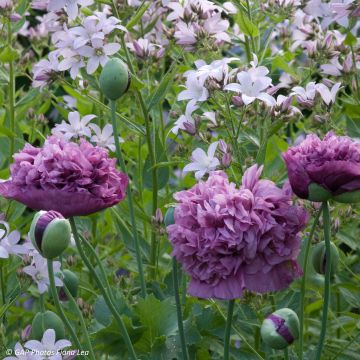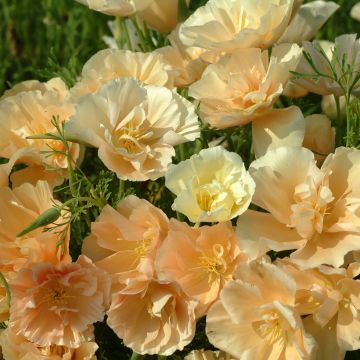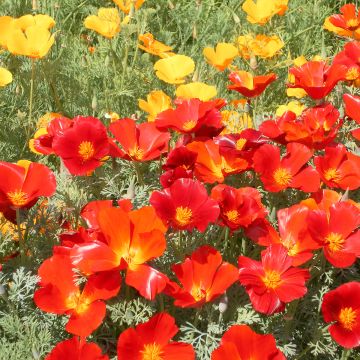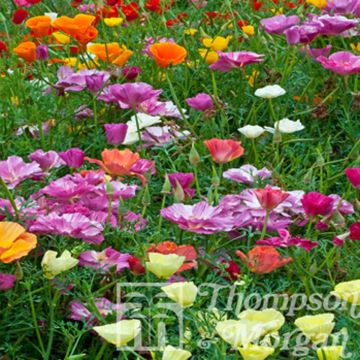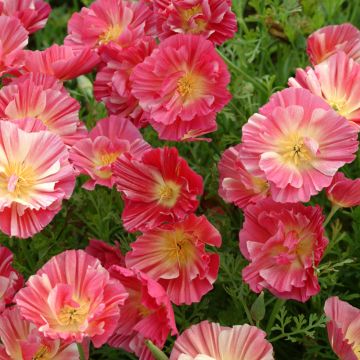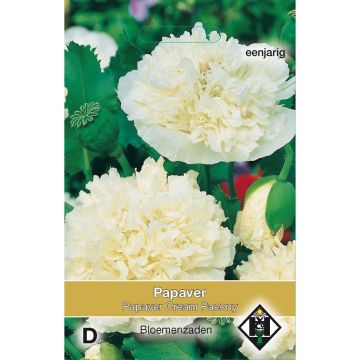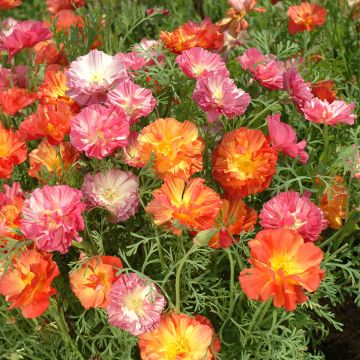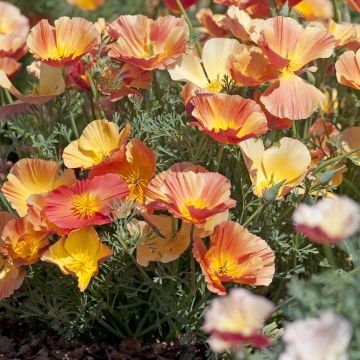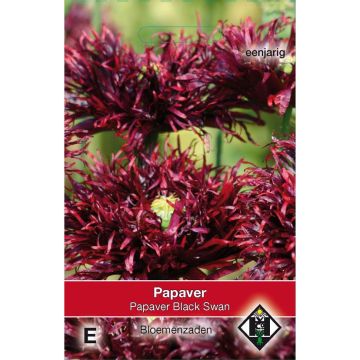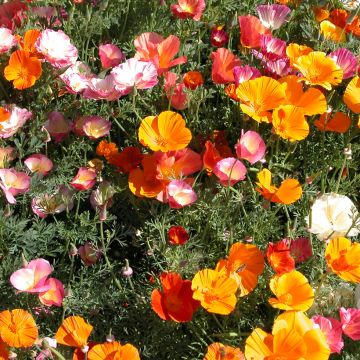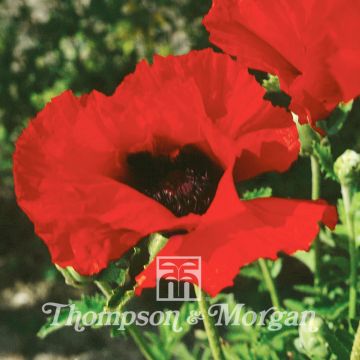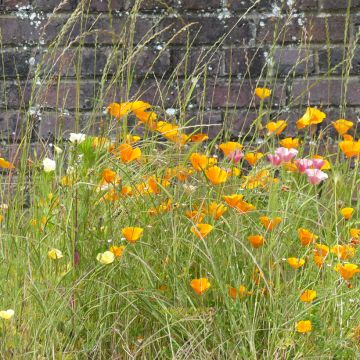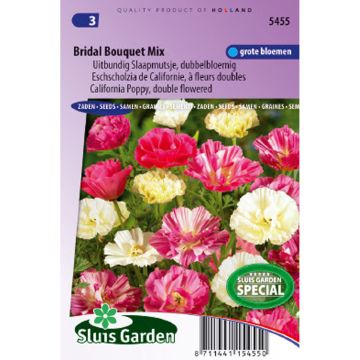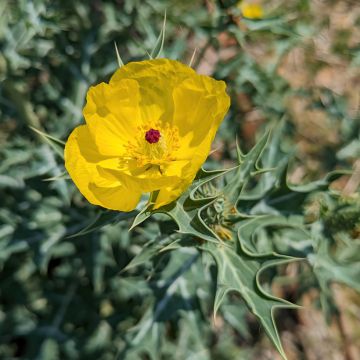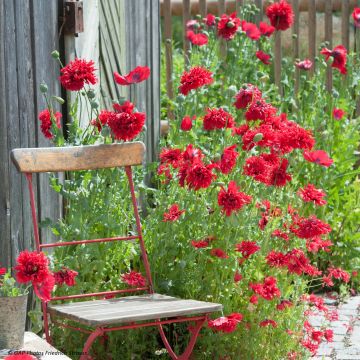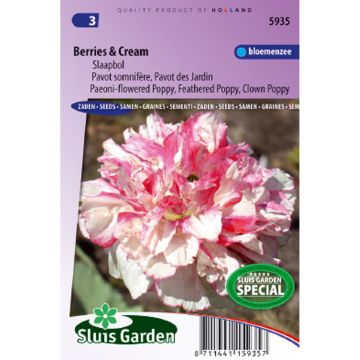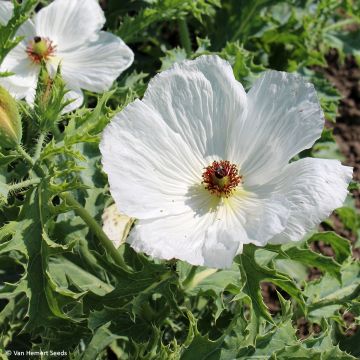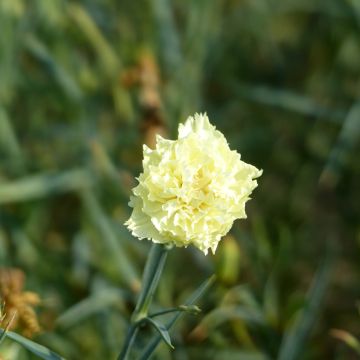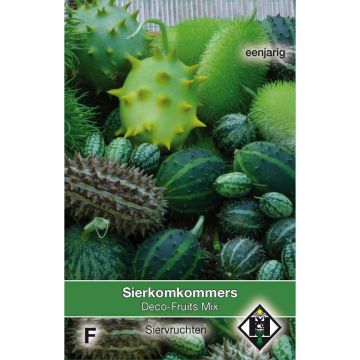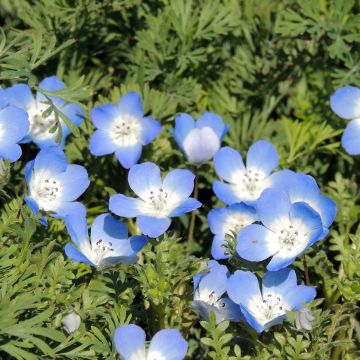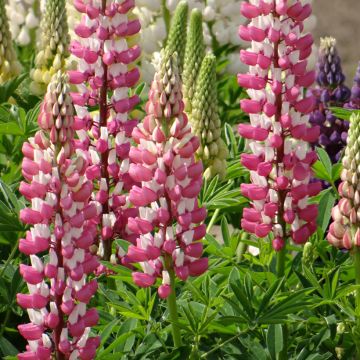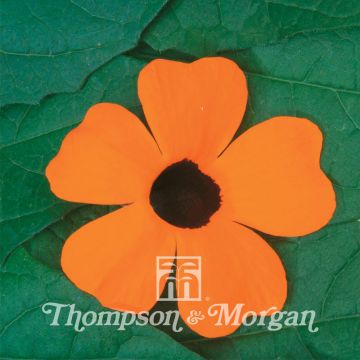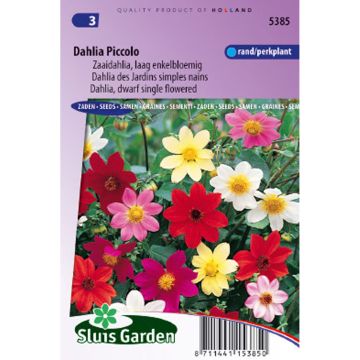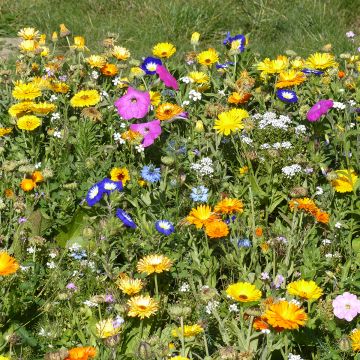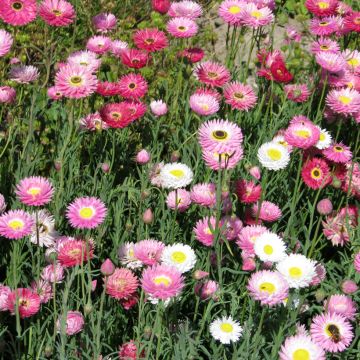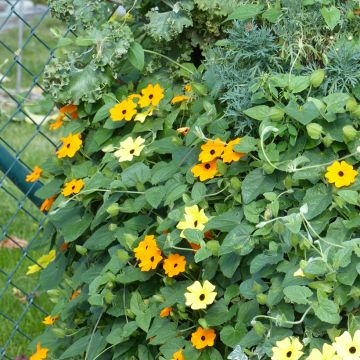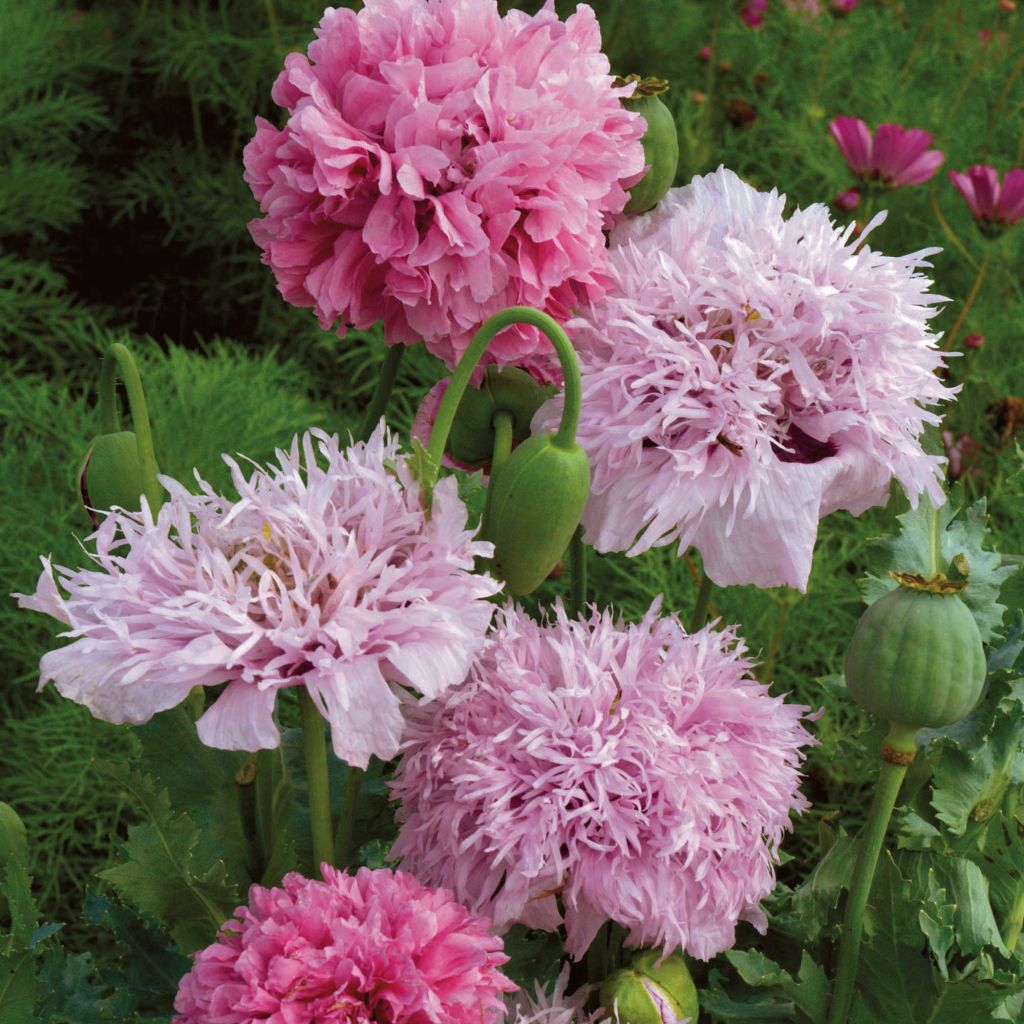

Opium Poppy Tallulah Belle Blush Seeds - Papaver somniferum
Opium Poppy Tallulah Belle Blush Seeds - Papaver somniferum
Papaver somniferum Tallulah Belle Blush
Peony Poppy, Paeony Flowered Poppy
Packet of seeds in the field of plants and protected by a plastic bag to avoid being affected by the moisture of the other plants ordered.
Sylviane P., 03/11/2018
Why not try an alternative variety in stock?
View all →This plant carries a 6 months recovery warranty
More information
We guarantee the quality of our plants for a full growing cycle, and will replace at our expense any plant that fails to recover under normal climatic and planting conditions.
Seed-only orders are dispatched by sealed envelope. The delivery charge for seed-only orders is €3.90.
Does this plant fit my garden?
Set up your Plantfit profile →
Description
This annual poppy called Papaper somniferum 'Tallulah Belle Blush', is a recent and really lovely variety. Its flowers seduce and attract as much with their extreme doubleness, as with the symphony of lilac, pink and soft purple hues that they render into this poetic mix. They are carried by sturdy stems emerging from a very ornamental, silvery bluish-green foliage. This variety is easy to grow, sown directly in the ground, and will thrive in the sun, in light, well-prepared soil. A must-have for romantic and wild gardens!
The opium poppy 'Tallulah Belle Blush' is a horticultural variety, belonging to the Papaveraceae or poppy family. It is derived from Papaver somniferum var. nigrum, which is found in the mountains of Asia, but also in Europe, on limestone soils where poppies usually grow. This plant, which probably originated in the regions between the Mediterranean and Anatolia, has given rise to a multitude of varieties that have long been cultivated for ornamental purposes.
'Tallulah Belle Blush' displays magnificent, undulating, bluish-green foliage tinted with silver, made up of beautifully lobed, elliptical leaves with scalloped margins. From its 30 to 45 cm wide clump of foliage, tall, 80 cm stems sprout up from June to August, bearing irresistible, solitary flowers. They are fully double and made up of countless tightly packed petals arranged into a pompom which, depending on the plant, will feature different shades of mauve, lilac, purplish or fresh pink. Summer blooms give way to a characteristic fruit, filled with small very ornamental black seeds which take on a slate blue sheen as it dries. Their aspect changes with the light because of the film of crystallized wax that protects their surfaces. Opium poppies have a taproot that is not very resistant to transplanting, so it is best to sow them in place.
Opium poppies are comfortable in sophisticated gardens, in cloister-type gardens and gardens without gardeners. They make it possible to quickly and effortlessly create seas of infinitely delicate flowers that seem to dance on the silvery foam of their foliage, producing a stirring spectacle of vivid, dark or pastel colours. Although they are not very long-lasting in bouquets, the flowers of the opium poppy 'Seriously Scarlet' are extremely charming when planted in masses in an old orchard, at the foot of fruit trees, in front of tall daisies, the moving blades of ornamental grasses or even in pots on the patio. This annual plant, like the cosmos, has no equivalent for occupying the open sunny spaces between annuals or large perennials such as Helianthus, whose flowers take over later in the season.
Once the flowering period is over, the fruit remains providing a precious asset for dry bouquets, but also the poppy straw, which is often perceived in more wild areas as a majestic element of the garden or a somewhat enigmatic remnant of summer.
Report an error about the product description
Opium Poppy Tallulah Belle Blush Seeds - Papaver somniferum in pictures
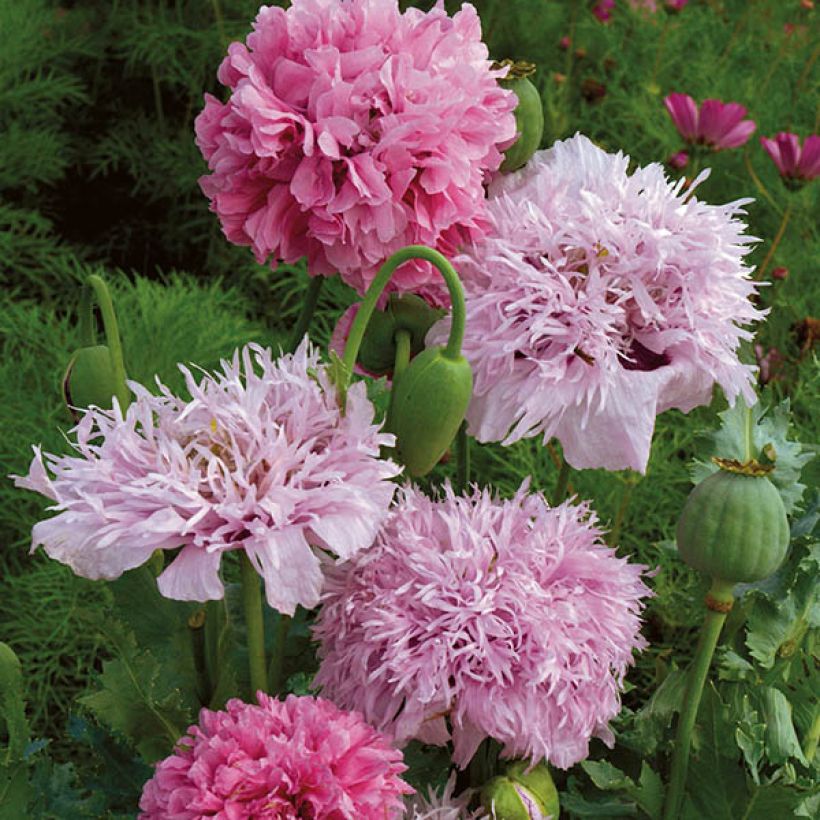

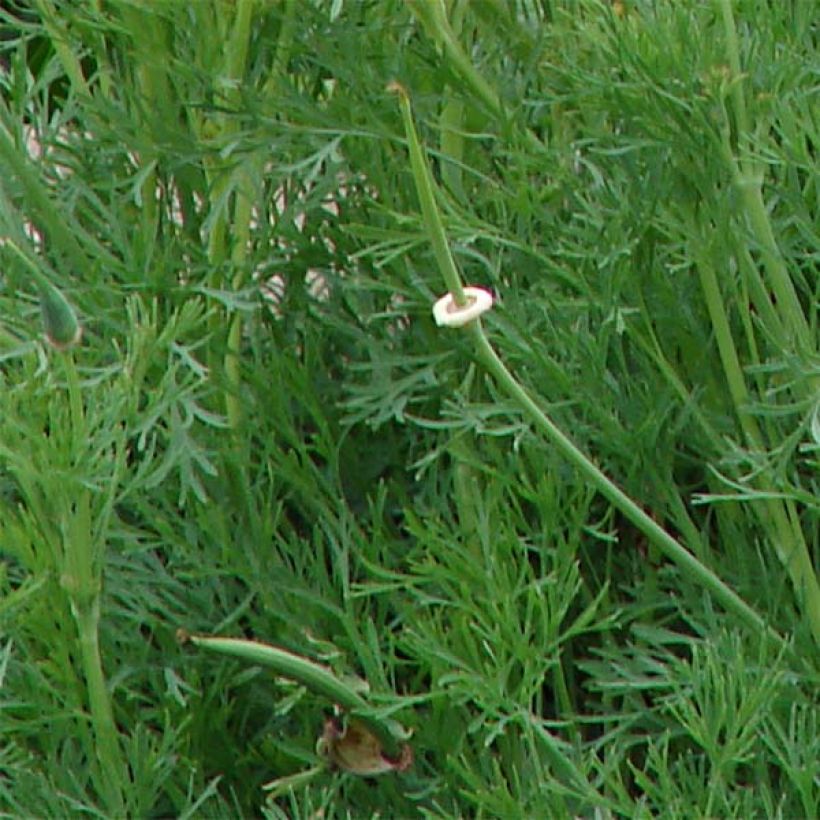

Flowering
Foliage
Plant habit
Botanical data
Papaver
somniferum
Tallulah Belle Blush
Papaveraceae
Peony Poppy, Paeony Flowered Poppy
Cultivar or hybrid
Other Poppy seeds
Planting and care
Sow opium poppy 'Tallulah Belle Blush' seeds directly outdoors, in spring or autumn. Choose a location in full sun with fertile, well-drained soil that has been well loosened beforehand. Sow the fine seeds just below the soil's surface, mixing them with sand or a special sowing soil in order to sow more thinly. Water regularly, especially during dry periods. Germination usually takes 15-20 days at 15-20 °C. When the poppy seedlings are sufficiently large enough to be handled, thin them out to 30 cm apart.
Garden poppies should not run out of water or food in the summer. They self-seed freely in the garden. Cut off spent flowers if you wish to avoid spontaneous seedlings. Even if they prefer light, loamy soils, annual poppies are undemanding plants that adapt to most well-prepared soils. Their seeds retain their germinating power for a long time, and it is not uncommon for seedlings to emerge years after a 'failed' sowing as a result of digging up the soil.
Important note: all poppies are poisonous. However, seeds produced by the species P. somniferum and P. paeoniflorum can be eaten. In general, the seeds are used in bakery recipes (breads, cakes...).
Sowing period
Intended location
-
, onOrder confirmed
Reply from on Promesse de fleurs
Flower seeds
Haven't found what you were looking for?
Hardiness is the lowest winter temperature a plant can endure without suffering serious damage or even dying. However, hardiness is affected by location (a sheltered area, such as a patio), protection (winter cover) and soil type (hardiness is improved by well-drained soil).

Photo Sharing Terms & Conditions
In order to encourage gardeners to interact and share their experiences, Promesse de fleurs offers various media enabling content to be uploaded onto its Site - in particular via the ‘Photo sharing’ module.
The User agrees to refrain from:
- Posting any content that is illegal, prejudicial, insulting, racist, inciteful to hatred, revisionist, contrary to public decency, that infringes on privacy or on the privacy rights of third parties, in particular the publicity rights of persons and goods, intellectual property rights, or the right to privacy.
- Submitting content on behalf of a third party;
- Impersonate the identity of a third party and/or publish any personal information about a third party;
In general, the User undertakes to refrain from any unethical behaviour.
All Content (in particular text, comments, files, images, photos, videos, creative works, etc.), which may be subject to property or intellectual property rights, image or other private rights, shall remain the property of the User, subject to the limited rights granted by the terms of the licence granted by Promesse de fleurs as stated below. Users are at liberty to publish or not to publish such Content on the Site, notably via the ‘Photo Sharing’ facility, and accept that this Content shall be made public and freely accessible, notably on the Internet.
Users further acknowledge, undertake to have ,and guarantee that they hold all necessary rights and permissions to publish such material on the Site, in particular with regard to the legislation in force pertaining to any privacy, property, intellectual property, image, or contractual rights, or rights of any other nature. By publishing such Content on the Site, Users acknowledge accepting full liability as publishers of the Content within the meaning of the law, and grant Promesse de fleurs, free of charge, an inclusive, worldwide licence for the said Content for the entire duration of its publication, including all reproduction, representation, up/downloading, displaying, performing, transmission, and storage rights.
Users also grant permission for their name to be linked to the Content and accept that this link may not always be made available.
By engaging in posting material, Users consent to their Content becoming automatically accessible on the Internet, in particular on other sites and/or blogs and/or web pages of the Promesse de fleurs site, including in particular social pages and the Promesse de fleurs catalogue.
Users may secure the removal of entrusted content free of charge by issuing a simple request via our contact form.
The flowering period indicated on our website applies to countries and regions located in USDA zone 8 (France, the United Kingdom, Ireland, the Netherlands, etc.)
It will vary according to where you live:
- In zones 9 to 10 (Italy, Spain, Greece, etc.), flowering will occur about 2 to 4 weeks earlier.
- In zones 6 to 7 (Germany, Poland, Slovenia, and lower mountainous regions), flowering will be delayed by 2 to 3 weeks.
- In zone 5 (Central Europe, Scandinavia), blooming will be delayed by 3 to 5 weeks.
In temperate climates, pruning of spring-flowering shrubs (forsythia, spireas, etc.) should be done just after flowering.
Pruning of summer-flowering shrubs (Indian Lilac, Perovskia, etc.) can be done in winter or spring.
In cold regions as well as with frost-sensitive plants, avoid pruning too early when severe frosts may still occur.
The planting period indicated on our website applies to countries and regions located in USDA zone 8 (France, United Kingdom, Ireland, Netherlands).
It will vary according to where you live:
- In Mediterranean zones (Marseille, Madrid, Milan, etc.), autumn and winter are the best planting periods.
- In continental zones (Strasbourg, Munich, Vienna, etc.), delay planting by 2 to 3 weeks in spring and bring it forward by 2 to 4 weeks in autumn.
- In mountainous regions (the Alps, Pyrenees, Carpathians, etc.), it is best to plant in late spring (May-June) or late summer (August-September).
The harvesting period indicated on our website applies to countries and regions in USDA zone 8 (France, England, Ireland, the Netherlands).
In colder areas (Scandinavia, Poland, Austria...) fruit and vegetable harvests are likely to be delayed by 3-4 weeks.
In warmer areas (Italy, Spain, Greece, etc.), harvesting will probably take place earlier, depending on weather conditions.
The sowing periods indicated on our website apply to countries and regions within USDA Zone 8 (France, UK, Ireland, Netherlands).
In colder areas (Scandinavia, Poland, Austria...), delay any outdoor sowing by 3-4 weeks, or sow under glass.
In warmer climes (Italy, Spain, Greece, etc.), bring outdoor sowing forward by a few weeks.

































